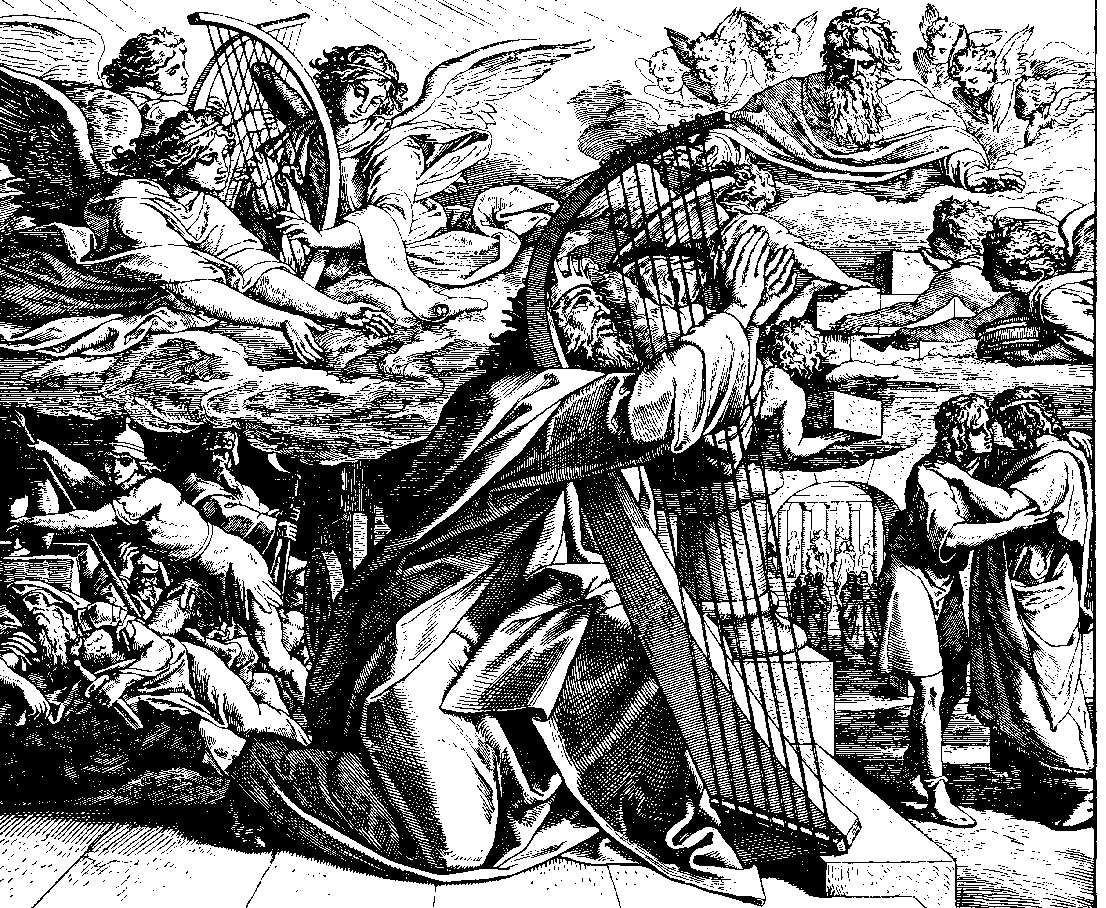Article XXI (IX): Of the Invocation of Saints- Part 1
1] The Twenty-first Article they absolutely condemn, because we do not require the invocation of saints. Nor on any topic do they speak more eloquently and with more prolixity. Nevertheless they do not effect anything else than that the saints should be honored; likewise, that the saints who live pray for others; as though, indeed, the invocation of dead saints were on that account necessary. 2] They cite Cyprian, because he asked Cornelius while yet alive to pray for his brothers when departing. By this example they prove the invocation of the dead. They quote also Jerome against Vigilantius. “On this field” [in this matter], they say, “eleven hundred years ago, Jerome overcame Vigilantius.” Thus the adversaries triumph, as though the war were already ended. Nor do those asses see that in Jerome, against Vigilantius, there is not a syllable concerning invocation. He speaks concerning honors for the saints, not concerning invocation. 3] Neither have the rest of the ancient writers before Gregory made mention of invocation. Certainly this invocation, with these opinions which the adversaries now teach concerning the application of merits, has not the testimonies of the ancient writers.
4] Our Confession approves honors to the saints. For here a threefold honor is to be approved. The first is thanksgiving. For we ought to give thanks to God because He has shown examples of mercy; because He has shown that He wishes to save men; because He has given teachers or other gifts to the Church. And these gifts, as they are the greatest, should be amplified, and the saints themselves should be praised, who have faithfully used these gifts, just as Christ praises faithful business-men, 5] Matt. 25:21, 23. The second service is the strengthening of our faith; when we see the denial forgiven Peter, we also are encouraged to believe the more that grace 6] truly superabounds over sin, Rom. 5:20. The third honor is the imitation, first, of faith, then of the other virtues, which every one should imitate according to his calling. 7] These true honors the adversaries do not require. They dispute only concerning invocation, which, even though it would have no danger, nevertheless is not necessary.
8] Besides, we also grant that the angels pray for us. For there is a testimony in Zech. 1:12, where an angel prays: O Lord of hosts, how long wilt Thou not have mercy on 9] Jerusalem? Although concerning the saints we concede that, just as, when alive, they pray for the Church universal in general, so in heaven they pray for the Church in general, albeit no testimony concerning the praying of the dead is extant in the Scriptures, except the dream taken from the Second Book of Maccabees, 15:14.
Moreover, even supposing that the saints pray for the Church ever so much, 10] yet it does not follow that they are to be invoked; although our Confession affirms only this, that Scripture does not teach the invocation of the saints, or that we are to ask the saints for aid. But since neither a command, nor a promise, nor an example can be produced from the Scriptures concerning the invocation of saints, it follows that conscience can have nothing concerning this invocation that is certain. And since prayer ought to be made from faith, how do we know that God approves this invocation? Whence do we know without the testimony of Scripture that the saints perceive the prayers of each one? 11] Some plainly ascribe divinity to the saints, namely, that they discern the silent thoughts of the minds in us. They dispute concerning morning and evening knowledge, perhaps because they doubt whether they hear us in the morning or the evening. They invent these things, not in order to treat the saints with honor, but to defend lucrative services. 12] Nothing can be produced by the adversaries against this reasoning, that, since invocation does not have a testimony from God’s Word, it cannot be affirmed that the saints understand our invocation, or, even if they understand it, that God approves it. Therefore 13] the adversaries ought not to force us to an uncertain matter, because a prayer without faith is not prayer. For when they cite the example of the Church, it is evident that this is a new custom in the Church; for although the old prayers make mention of the saints, yet they do not invoke the saints. Although also this new invocation in the Church is dissimilar to the invocation of individuals.
14] Again, the adversaries not only require invocation in the worship of the saints, but also apply the merits of the saints to others, and make of the saints not only intercessors, but also propitiators. This is in no way to be endured. For here the honor belonging only to Christ is altogether transferred to the saints. For they make them mediators and propitiators, and although they make a distinction between mediators of intercession and mediators [the Mediator] of redemption, yet they plainly make of the saints mediators of redemption. 15] But even that they are mediators of intercession they declare without the testimony of Scripture, which, be it said ever so reverently, nevertheless obscures Christ’s office, and transfers the confidence of mercy due Christ to the saints. For men imagine that Christ is more severe and the saints more easily appeased, and they trust rather to the mercy of the saints than to the mercy of Christ, and fleeing from Christ [as from a tyrant], they seek the saints. Thus they actually make of them mediators of redemption.
16] Therefore we shall show that they truly make of the saints, not only intercessors, but propitiators, i.e., mediators of redemption. Here we do not as yet recite the abuses of the common people [how manifest idolatry is practised at pilgrimages]. We are still speaking of the opinions of the Doctors. As regards the rest, even the inexperienced [common people] can judge.
17] In a propitiator these two things concur. In the first place, there ought to be a word of God from which we may certainly know that God wishes to pity, and hearken to, those calling upon Him through this propitiator. There is such a promise concerning Christ, John 16:23: Whatsoever ye shall ask the Father in My name, He will give it you. Concerning the saints there is no such promise. Therefore consciences cannot be firmly confident that by the invocation of saints we are heard. This invocation, therefore, 18] is not made from faith. Then we have also the command to call upon Christ, according to Matt. 11:28: Come unto Me, all ye that labor, etc., which certainly is said also to us. And Isaiah says, 11:10: In that day there shall be a root of Jesse, which shall stand for an ensign to the people; to it shall the Gentiles seek. AndPs. 45:12: Even the rich among the people shall entreat Thy favor. And Ps. 72:11,15: Yea, all kings shall fall down before Him. And shortly after: Prayer also shall be made for Him continually. And in John 5:23 Christ says: That all men should honor the Son even as they honor the Father. And Paul, 2 Thess. 2:16-17, says, praying: Now our Lord Jesus Christ Himself, and God, even our Father, … comfort your hearts and stablish you. (All these passages refer to Christ.] But concerning the invocation of saints, what commandment, what example can the adversaries produce from the Scriptures?19] The second matter in a propitiator is, that his merits have been presented as those which make satisfaction for others, which are bestowed by divine imputation on others, in order that through these, just as by their own merits, they may be accounted righteous. As when any friend pays a debt for a friend, the debtor is freed by the merit of another, as though it were by his own. Thus the merits of Christ are bestowed upon us, in order that, when we believe in Him, we may be accounted righteous by our confidence in Christ’s merits as though we had merits of our own.
20] And from both, namely, from the promise and the bestowment of merits, confidence in mercy arises [upon both parts must a Christian prayer be founded]. Such confidence in the divine promise, and likewise in the merits of Christ, ought to be brought forward when we pray. For we ought to be truly confident, both that for Christ’s sake we are heard, and that by His merits we have a reconciled Father.
21] Here the adversaries first bid us invoke the saints, although they have neither God’s promise, nor a command, nor an example from Scripture. And yet they cause greater confidence in the mercy of the saints to be conceived than in that of Christ, although Christ bade us come to Him 22] and not to the saints. Secondly, they apply the merits of the saints, just as the merits of Christ, to others; they bid us trust in the merits of the saints as though we were accounted righteous on account of the merits of the saints, in like manner as we are accounted righteous by the merits of Christ. Here we fabricate nothing. 23] In indulgences they say that they apply the merits of the saints [as satisfactions for our sins]. And Gabriel, the interpreter of the canon of the Mass, confidently declares: According to the order instituted by God, we should betake ourselves to the aid of the saints, in order that we may be saved by their merits and vows. These are the words of Gabriel. And nevertheless, in the books and sermons of the adversaries still more absurd things are read here and there. What is it to make propitiators if this is not? They are altogether made equal to Christ if we must trust that we are saved by their merits.
24] But where has this arrangement, to which he refers when he says that we ought to resort to the aid of the saints, been instituted by God? Let him produce an example or command from the Scriptures. Perhaps they derive this arrangement from the courts of kings, where friends must be employed as intercessors. But if a king has appointed a certain intercessor, he will not desire that cases be brought to him through others. Thus, since Christ has been appointed Intercessor and High Priest, why do we seek others? [What can the adversaries say in reply to this?]


